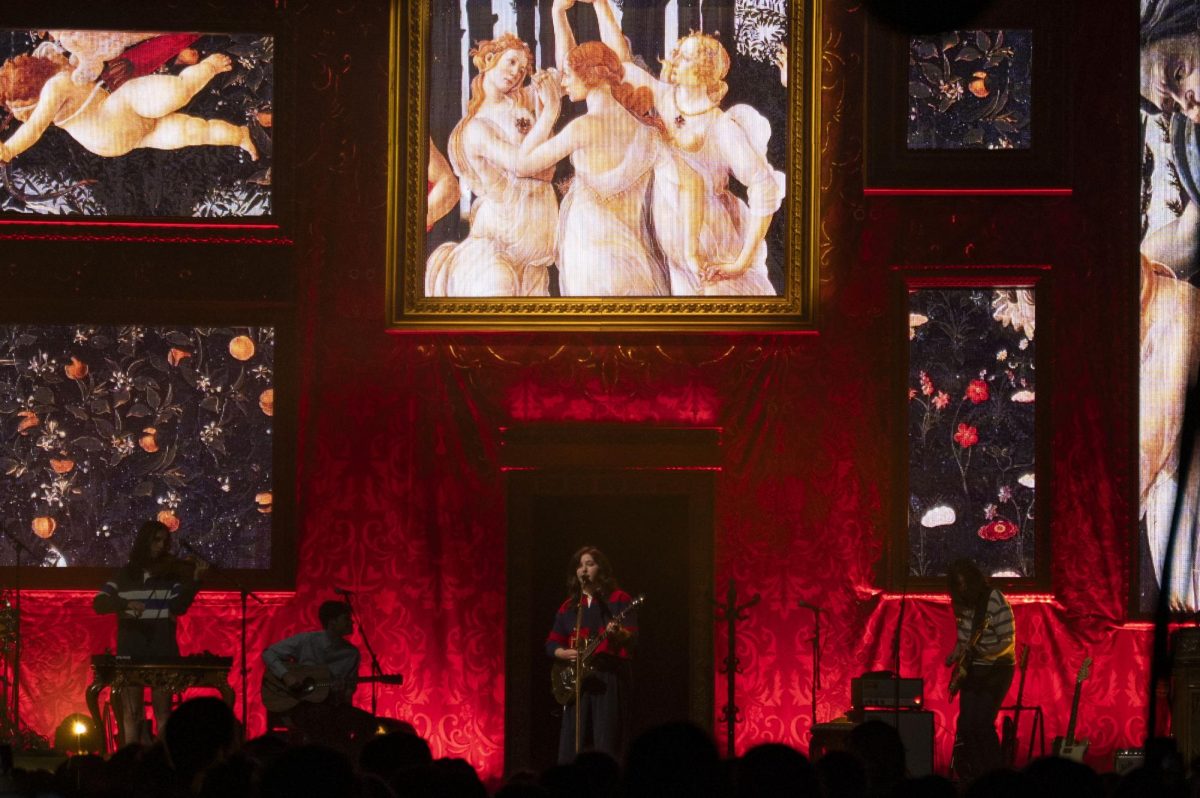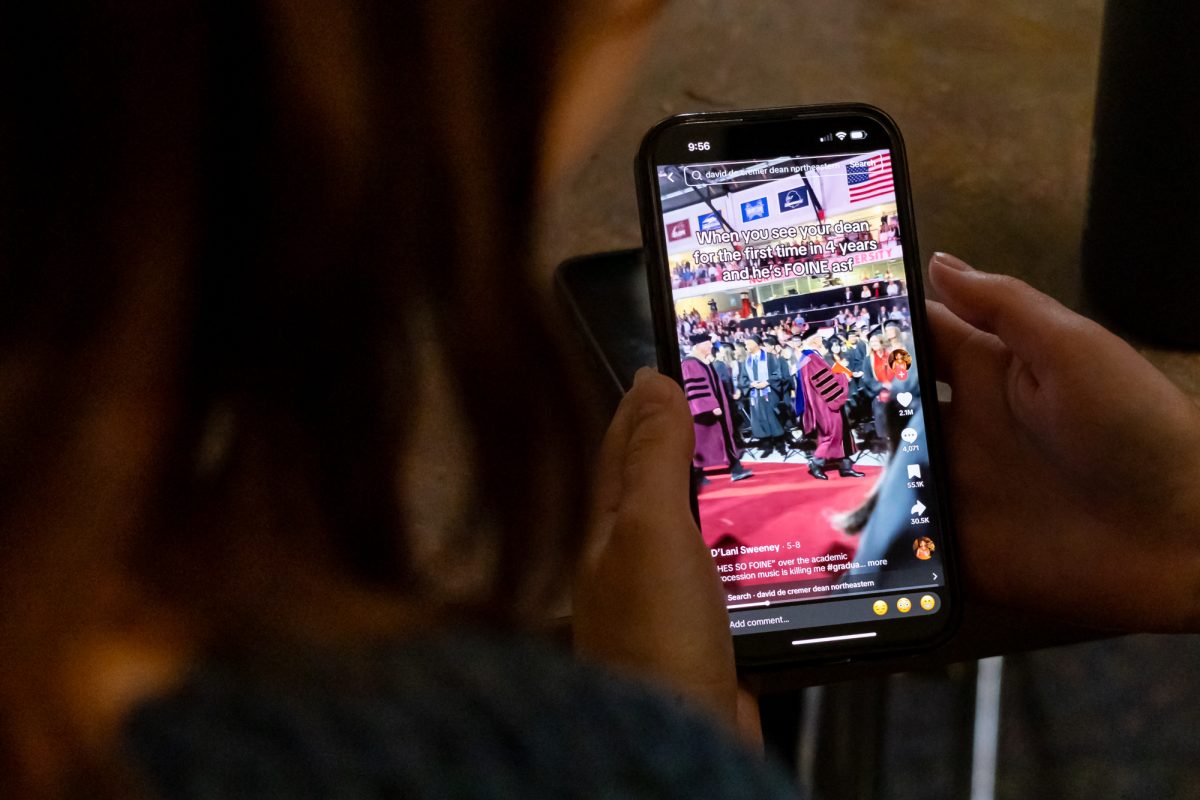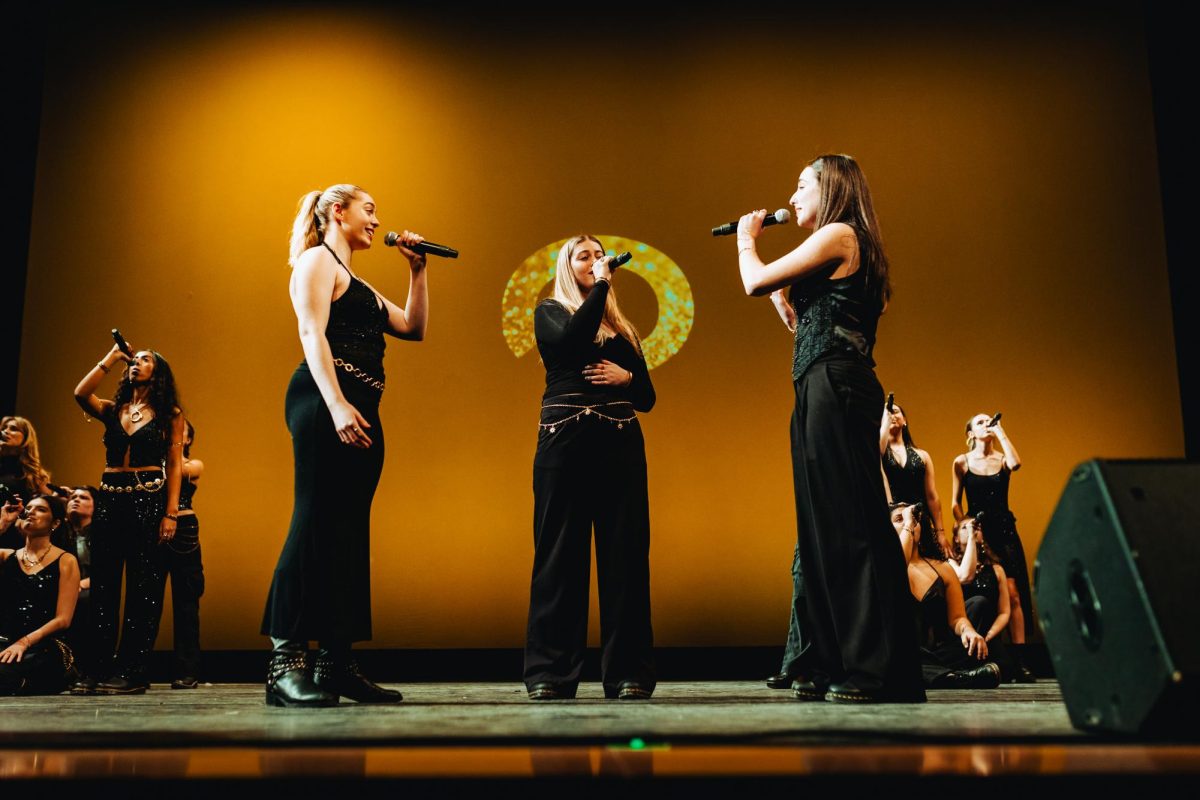
by Matt Dolloff, New Correspondent
Northeastern students interested in a career in film will be excited to know that someone with a vast, diverse career in the field spends much of his time lecturing at Northeastern. Brad Hatfield is an Emmy Award-winning musician who lives in Westwood and has taught part-time at Northeastern since 2008.
Like many other professional musicians, Hatfield has made a career out of having his pieces selected for use in film soundtracks. Hatfield’s filmography spans dozens of films over the past 20 years. “Dear John,” starring Amanda Seyfried and Channing Tatum, is just the latest to feature his work, a piece titled “Ballroom Ballad.”
A film’s “source music” – that is, music emanating from within a scene – is such an oft-used tool for enhancing the realism of a film that it is barely noticed. The viewer is unaware of its heightened comfort level due to the music in the background.
“It’s serving a film, serving a TV show, serving the characters,” said Hatfield. “It’s not, ‘Hey, here’s my big song.’ It’s a song that helps the scene be believable.”
This has been the most common use of Hatfield’s pieces, which are often found through his publisher who holds a library of more than 250 pieces of his work. Much of his film and TV credits come this way, but just recently he took on the job of creating source music for a wide variety of scenes for hit FX series “Rescue Me” starring Massachusetts native Denis Leary.
Sometimes Hatfield can have a special kind of task for making music for a film, which he did when he worked on the most prominent film on his resume to date, Clint Eastwood’s Academy Award-winning “Mystic River.”
Eastwood has a reputation for filming scenes in a single take and going into post-production under budget. When this happens, he usually figures out a way to spend the rest of the budget in a way that would improve the film. For Mystic River, he turned to the Boston Symphony Orchestra for additional music.
Eastwood then asked Pat Hollenbeck, who has arranged scores for John Williams, to help out. Hollenbeck then recruited Hatfield to play piano for the score. Their initial task was to create “temporary tracks” so that Eastwood could hear the material several days in advance of recording sessions.
“For many days we were downstairs pulling all-nighters, generating all these cues for the film,” said Hatfield of the tenuous process recording the temporary tracks.
Hatfield was rewarded for his efforts, though, and soon after he was called in to play on the recording sessions. He entered the stage on recording day with Eastwood in the front row.
“It’s pretty nerve-wracking when you have the symphony on stage and Clint sitting there watching,” Hatfield said. “You really don’t want to mess that up.”
He did not mess it up. In fact, later on while Hatfield was playing Eastwood’s theme in an improvised jazz style, Eastwood asked him to keep playing. After about 20 minutes Hatfield began to run out of ideas, but the impromptu performance turned out to be a major success.
Hatfield’s piece ended up being the final version of the song at the beginning and end credits of “Mystic River” at the request of Eastwood. Hatfield had no shortage of adulation for the Hollywood legend.
“He’s a good guy to have on your side,” Hatfield said of Eastwood.
“Mystic River” isn’t Hatfield’s only major career accomplishment. He won the 2006 Emmy Award for Best Original Song, a piece called “Sunshine” that he co-wrote with composer Michael Kisur, that was featured on “All My Children.”
As a performer, Hatfield has performed many times with the world-renowned Boston Pops under the direction of John Williams and Keith Lockhart, alongside musicians such as fellow Boston native James Taylor, Yo Yo Ma, Bono of U2 and KD Lang. He has been called upon to perform with artists such as Aretha Franklin, Carly Simon, Andrea Bocelli and several others, when they come through the Boston area.
Considering all the high-profile collaborations Hatfield has been a part of, he could be an excellent source for advice to aspiring musicians and composers. He said the most important qualities are timeliness, dependability and respect.
“There are people too far on the artistic side of [the music business], and lose sight of the job they’re doing,” Hatfield said. “The first thing you need is to be a reasonable person and work really hard at your craft, and you need to know a lot of different music.”
– Matt Dolloff is a journalism major at Northeastern and an intern for HollywoodEastConnection.com.








